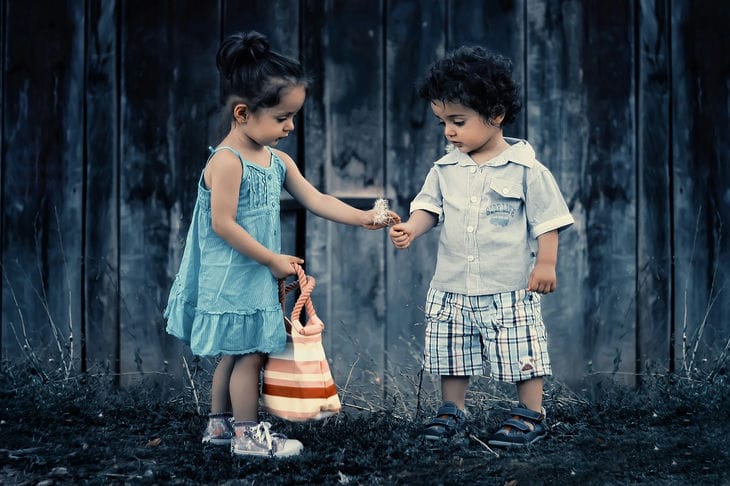Psychologist Yulia Vatutina told how to help a child make friends.
A child may not have friends for various reasons, here are the most common ones.
1. Social inadequacy: Some children may have difficulty with social interactions or have low self-esteem, which makes it difficult for them to form friendships.
2. Lack of social skills. The child may not have enough experience or skills to interact effectively with other children.
For example, he is shy about meeting new people or has difficulty finding common topics, maintaining a conversation, and expressing his own thoughts.
3. Mismatched interests. The child may be interested in things that most other children are not interested in. Because of this, he will not want to discuss the interests of other children, and other children will not be interested in the child's interests.

The important thing here is to prevent the child from succumbing to the mainstream and abandoning the hobbies that he really likes in favor of socially approved ones.
4. Change of environment. If the family moved and the child had to change schools, then it may be difficult for him to find new friends in an already established group.
5. Negative experience or trauma. If a child has been bullied by peers in the past or simply had conflicts with them, then he or she may develop a fear of building new social connections and a distrust of friendships.
6. Character or personality traits. Each child has his or her own unique character traits.
Some children are naturally introverted, reserved, and prefer to spend time alone, which can make it difficult to make friends.
If your child doesn't have friends, it's important to support him or her and create opportunities for social interaction.
The main thing is not to force the child to make friends and put psychological pressure on him. Moreover, sometimes having a certain circle of friends is worse than not having them.
What to do to help your child make friends
Helping a child make friends is a challenging task for parents. Psychologist-psychotherapist, coach Yulia Vatutina offers several strategies that can help your child along the way.
1. Promote social skills. Help your child develop social skills such as communication, listening and understanding others, sharing and cooperation.
Spend time at playgrounds, parks, or other places where your child can interact with other children.
2. Encourage Interests. Help your child find interests or hobbies that he or she truly enjoys. This could be sports, art, music, dance, or other activities. Getting involved in these activities will help your child meet and interact with other children who have similar interests.
3. Organize play activities. Invite other children to birthday parties or picnics. This will give your child the opportunity to interact with other children and build relationships.
4. Promote emotional intelligence. Help your child develop an understanding of other people’s emotions and teach them to establish social connections. Give them a general idea of what empathy is and why it’s important.
5. Support self-esteem. Help your child develop healthy self-esteem and self-confidence. Encourage his achievements, help your child recognize and develop his strengths.
Feeling confident and self-respectful will help your child approach other children openly and without fear.
6. Contact your school or clubs. Sometimes schools and clubs offer programs or activities that help children socialize. Find out about these opportunities and support your child’s participation in such programs.
7. Be patient. Building friendships can take a long time, so don't rush your child.
Explain to him that friendship takes time and effort, and that relationships with some people develop more slowly than with others.
Remember that each child's character is unique and not everyone can make many friends.
How to Develop Social Skills in a Child
In creating conditions for social interaction, the most important role is played by the transfer of social skills to the child. To do this:
- teach him basic communication skills such as greeting, politeness, smiling and eye contact;
- develop empathy skills: help him understand what actions and words can cause positive or negative reactions in others;
- Practice role-playing games: this will help the child master the skills of communication, cooperation and conflict resolution;
- teach conflict resolution skills: teach him to be attentive to the opinions of others and to constructively defend his point of view;
- Encourage independence: don’t be overprotective, encourage your child to choose interesting people and start communicating with them.
If you can’t teach your child social skills on your own, you should seek help from a specialist.








